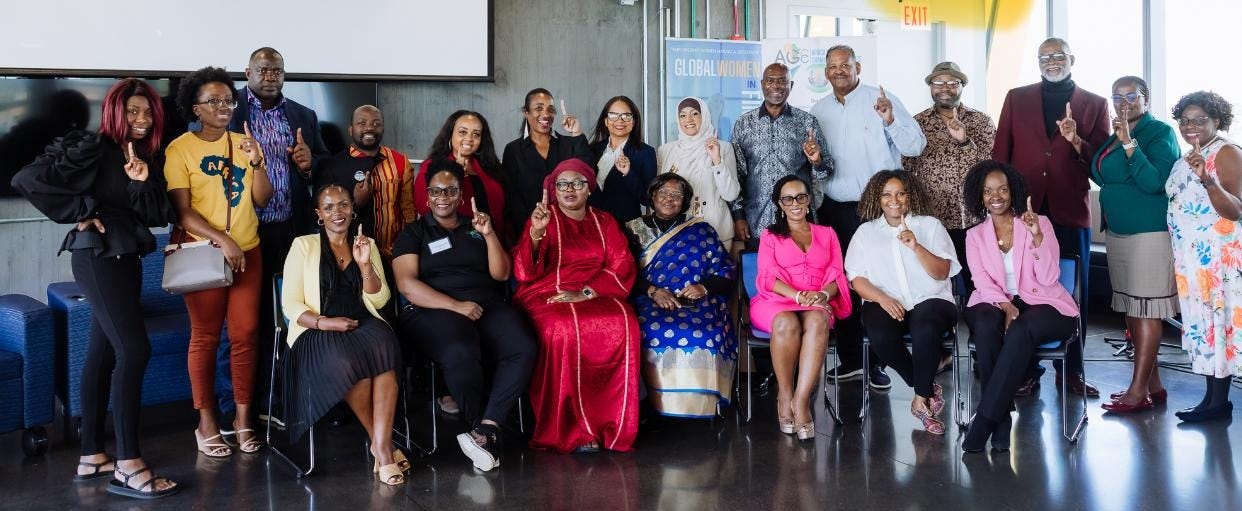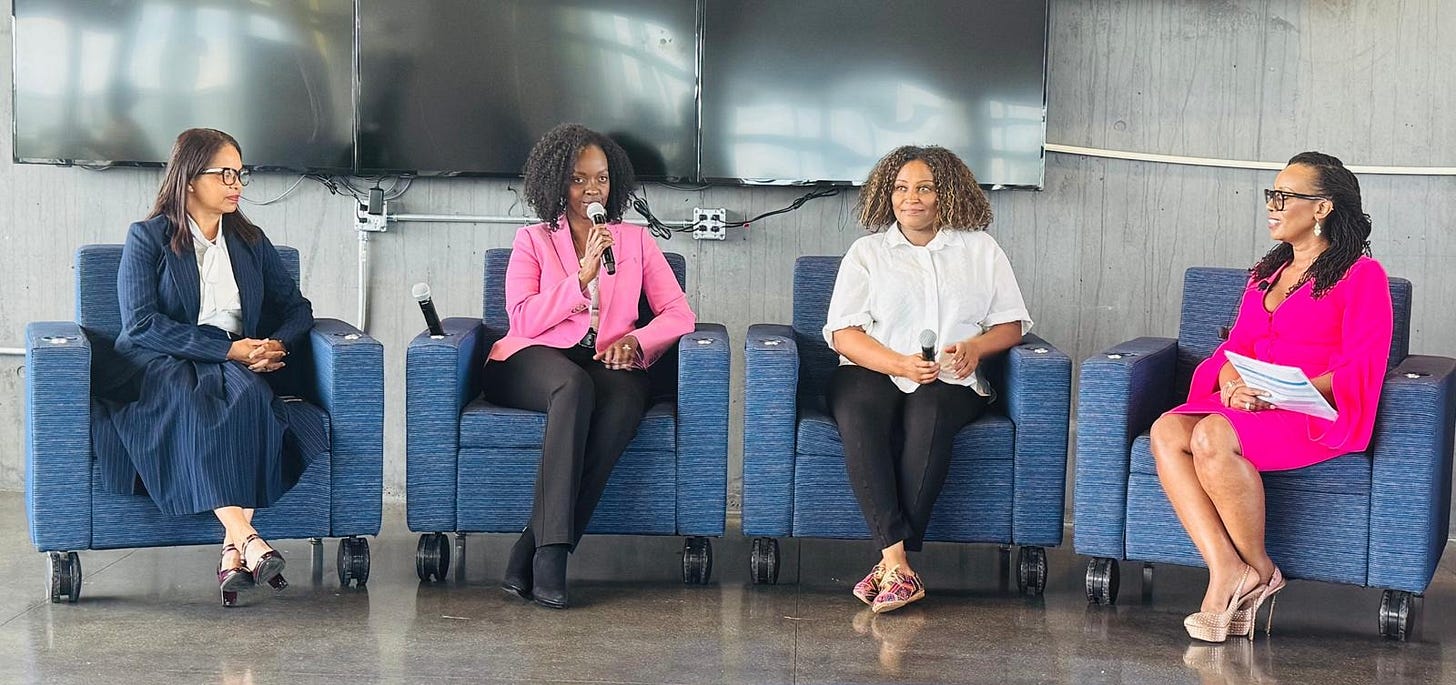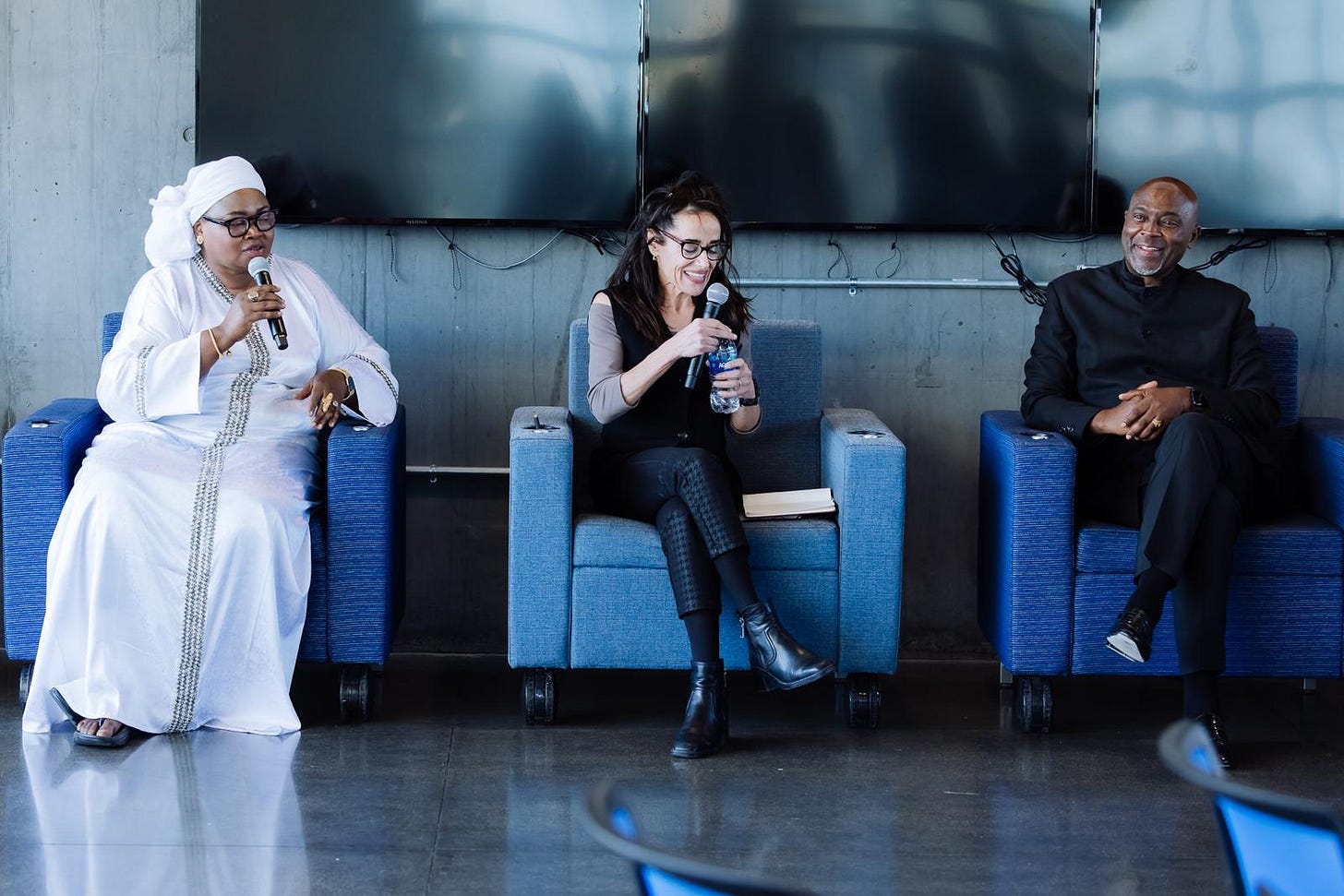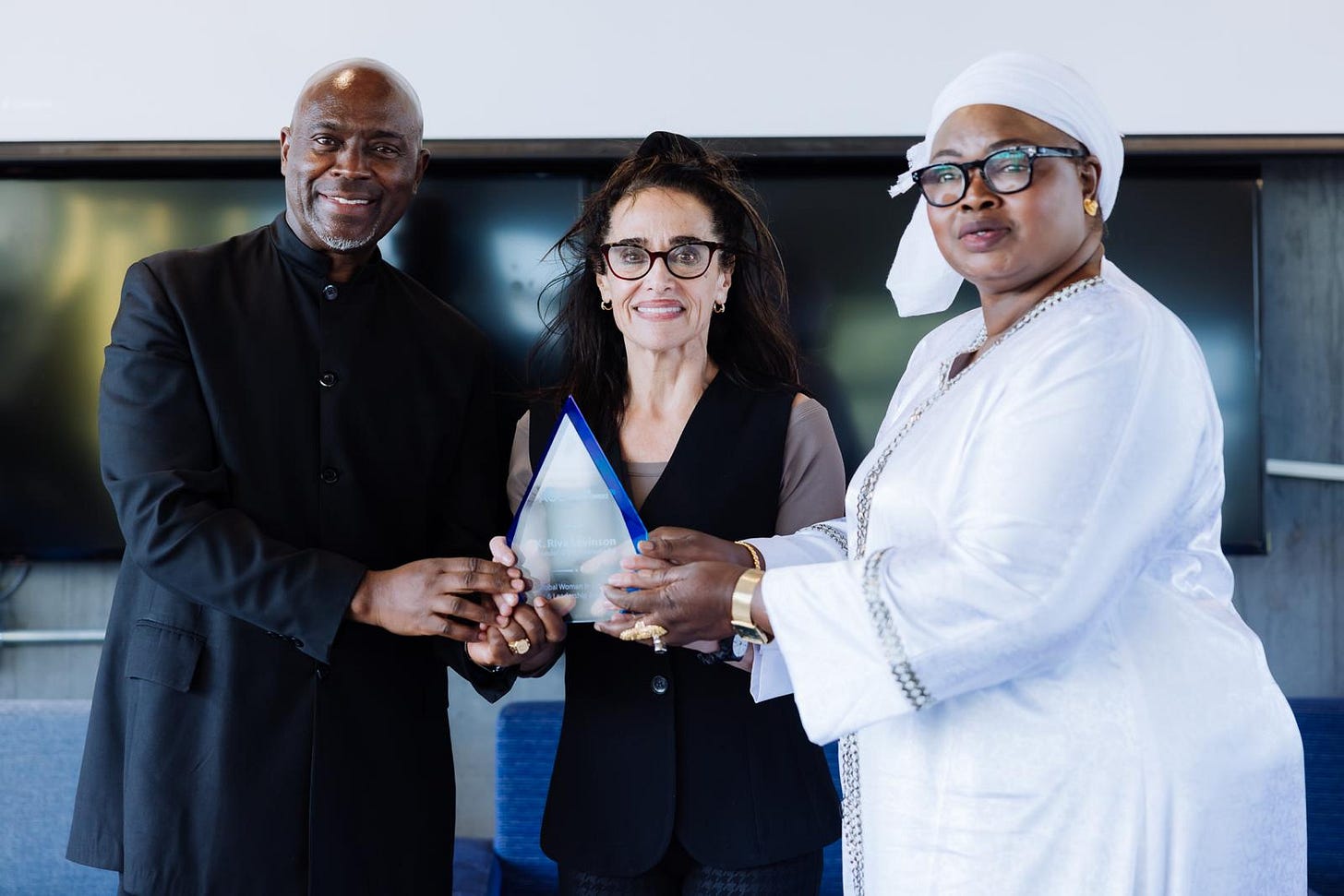Women's Leadership Is An Economic Imperative
At a landmark summit in Chicago, global women leaders made the case that empowering women is not just fair—it’s fundamental to economic prosperity.
The question is beyond reasonable debate: societies that empower women to achieve their full potential will inevitably thrive. And that is not merely a political statement.
There is a strong correlation between women’s emancipation and a country’s level of social and economic development. So, how can we create and sustain the conditions for such a virtuous cycle?
This question was at the heart of the Global Women in Finance Leading Summit, a two-day event held in early September in Chicago.
Women leaders from the United States, Africa, and other parts of the world gathered to explore ways to accelerate progress by promoting wealth creation and fostering leadership across generations.
The summit was jointly hosted by the African Global Chamber of Commerce and Northeastern Illinois University, who framed women’s leadership as not merely a matter of equity—but as an economic imperative.
Indeed, enabling the flourishing of half of humanity is not a peripheral concern. But how exactly do we go about achieving it?
“Women must not wait to be invited into the room—they should own the room where economic decisions are made.”
— Dr. Olivier Kamanzi
Partnerships
Inclusion is not enough, argued Katherine Franklin, a money coach who opened the summit as moderator. Inclusion must translate into the creation of intergenerational wealth.
Access to finance, therefore, is crucial—and that point was clearly articulated by Dr. Katrina Bell Jordan, President of Northeastern Illinois University.
The value of partnerships between universities and industry, Dr. Bell said, cannot be overstated in any effort to shape the next generation of finance leaders.
She was thus pleased to announce the signing of a formal partnership between her institution and the African Global Chamber of Commerce.
But why does it matter—on a practical level—for women to stand prominently in society across all sectors?
“Women are pillars of local economies,” said Mayor Rohey Malick Lowe—the first female mayor of Banjul, The Gambia—who noted the uncomfortable reality that gender still too often plays a role in excluding women from decision-making circles.
So, how does one overcome such systemic hurdles?
Reverend Janette Wilson offered a clear call: solidarity. Breaking the grip of gender-based gatekeeping requires unified advocacy—and, she emphasised, there are no better advocates for gender balance than women themselves.
As Commissioner Donna Miller of Cook County told the summit, women’s advocacy has the power to reshape budget priorities.
In Africa, where gender disparities can be particularly stark, the issue can sometimes feel overwhelming to those working tirelessly on the ground to effect change. Striking a balance is essential—and rhetoric, however well-intentioned, can at times become a hindrance.
That’s why Ambassador Rama Yade, in her keynote message, chose a different lens. She reframed African women not as survivors, but as builders.
They are not merely enduring hardship; they are actively constructing futures. They can rightfully claim the legacies of leaders like Ngozi Okonjo-Iweala and Ellen Johnson Sirleaf as their own.
Moreover, presidential corridors and global finance boardrooms are not the only places where these builders are found.
One such builder stood firmly at the centre stage during the summit: Professor Florence Muranga.
As Director General of the Banana Industrial Research and Development Center (BIRDC) in Uganda, Prof Muranga led the successful development and introduction of the African Green Banana Tooke—value-added banana products—into the American market.
To ensure continued access for Tooke products in the U.S., her company signed a trade agreement with the African Global Chamber of Commerce—further reinforcing Katherine Franklin’s opening message: partnerships are key. They are the catalysts for progress. They are the bridges to broader impact.
“Our stories heal us, but they also guide communities.”
— Professor Janine
Is the Future Feminist?
According to Mayor Rohey Malick Lowe of Banjul, the answer is yes—“the future is feminist.” As she explained, this framing is more inclusive and strategic than the often-used phrase “the future is female.”
But beyond semantics, something must shift. Concrete action is needed to dismantle the structures that continue to limit women’s full participation in economic life.
Key areas for action include:
Challenging cultural norms that systematically exclude women
Expanding access to capital and credit, particularly for women entrepreneurs
Strengthening intergenerational knowledge transfer to preserve and build on progress
Shifting perceptions of finance as a male-dominated domain
Overcoming family resistance to women’s autonomy and independence
Excellence
Above all, Chicago was a celebration—a moment to recognise and honour a cohort of women who lead the field as visionary builders. Their achievements reflect the summit’s core mission:
To build bridges across continents, unlock new opportunities, and empower women to lead with purpose and impact.
The highlight of this celebration was the Global Woman in Finance Leadership Award ceremony, which crowned 14 laureates. According to organiser Dr. Olivier Kamanzi, the women who stepped up to the podium exemplified leadership and mentorship with tangible, measurable impact.
“The Annual Awards recognise exceptional women in finance who demonstrate exemplary leadership and are actively committed to empowering and mentoring other women and young people,” Dr. Kamanzi told The Gazette.
What drives his commitment to the summit and its growing momentum?
“Most women operate in the informal sector and lack access to capital,” he said. “We wanted to bring together successful women and those seeking support—to connect them and create a platform where women can secure the financial tools and mentoring they deserve.”
“When women lead, communities thrive; when women are empowered financially, nations prosper.”
—Dr. Olivier Kamanzi
Roll Of Honour
Among the 2024 laureates celebrated for their outstanding contributions to finance, leadership, and mentorship were:
Ambassador Rama Yade, Senior Director, Atlantic Council’s Africa Center
Jackie Taylor, Founder, Black Ensemble Theatre
Eliza Prendzov, CEO, Prend Capital; President, American Balkan Chamber of Commerce
Henrietta Wamala, RHIA, Edward Elmhurst Health
Karen Riva Levinson, Founder, KRL International
Professor Jeanine Ntihirageza, Department Chair, Northeastern Illinois University
Agnes Kitumba Netunze, CEO, Arize Kollections Limited
Courtney Francis, Co-ordinator, African and African American Studies Program, Northeastern Illinois University
Sheila Dantzler Rugege, Real Estate Broker, Jameson Sotheby’s International Realty
Stella Kilonzo, Principal Consultant, Development Banking & Capital Markets Executive
Yasmeen Bankole, Former Regional Director, Office of U.S. Senator Dick Durbin
Lydia Abana, Executive Assistant to the Chairman, Africa Global Chamber of Commerce (AGCC)
Sophie Mukasa, Director of Operations, Programmes, and Events, Africa Global Chamber of Commerce (AGCC)
Together, these women represent the power of leadership, the strength of networks, and the future of inclusive finance.













